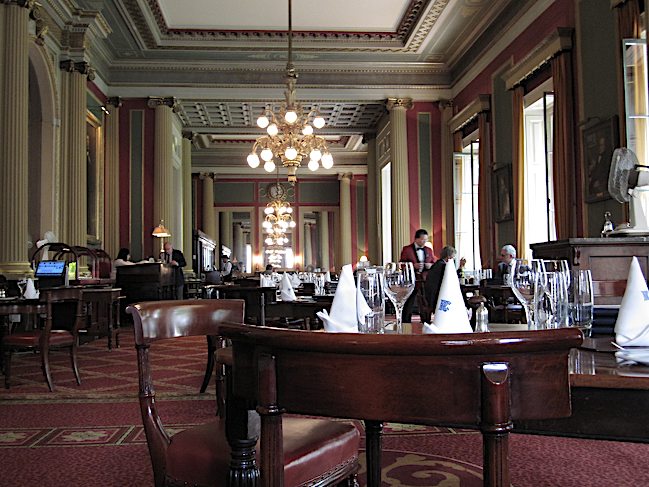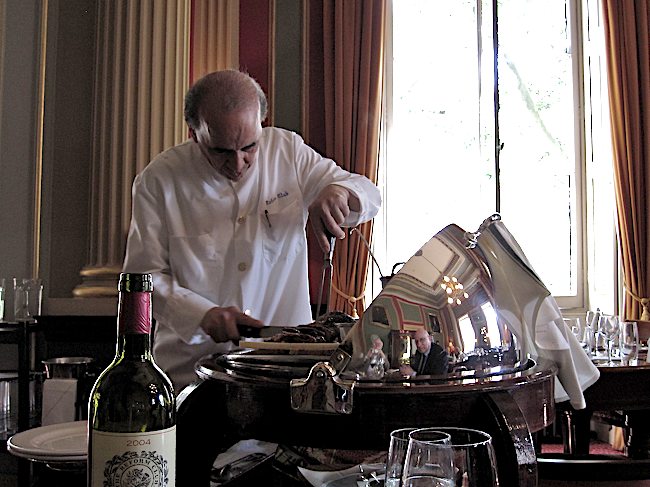Hindsight, they say, is the only exact science. The trouble is that we need it now. The news that Obama had fired General McChrystal while keeping the policy that the general was trying to implement sent me scurrying to locate my copy of Barbara Tuchman’s March of Folly: From Troy to Vietnam . Why? Because it reviews the story of the US’s adventure in Vietnam with the benefit of hindsight, and in the process makes plain the futility and stupidity of the enterprise. And I’m thinking that US policy in Afghanistan has all the same hallmarks, and yet we’re locked into the doomed enterprise much as Lyndon Johnson was in the 1960s.
. Why? Because it reviews the story of the US’s adventure in Vietnam with the benefit of hindsight, and in the process makes plain the futility and stupidity of the enterprise. And I’m thinking that US policy in Afghanistan has all the same hallmarks, and yet we’re locked into the doomed enterprise much as Lyndon Johnson was in the 1960s.
One comparison in particular strikes me. Tuchman points out that the more enfeebled, corrupt and incompetent the regime in South Vietnam became, the more influence it exerted on its superpower patron. Spool forward to Afghanistan and we have the Karzai administration — corrupt, incompetent and feeble — more or less holding the US government to ransom. Karzai stole the presidential election, and yet was endorsed by Obama and Gordon Brown. There are 100,000 NATO troops in Afghanistan fighting what they all recognise as a futile, unwinnable war. A steady stream of bodybags returns to the US and to RAF Brize Norton ever week (1,000 to the US, 300 to the UK) We have a fresh, new administration in Britain which is cheerily engaged in a root-and-branch examination of public spending, and yet there’s not a hint that an adventure that must be costing £100 million a week should be re-assessed. Instead David Cameron goes to Afghanistan, is photographed with Karzai and solemnly restates his administration’s resolute commitment to the whole doomed charade. And back in London almost nobody (except for the columnist Simon Jenkins) seems willing to ask the question that needs to be asked: what the f*** are we doing there?
But it was the same in the 1960s. There were a few voices in Washington who asked awkward questions, but in the main there was no public debate about the wisdom — never mind the ethics or the feasability — of the war in Southeast Asia. And so the killing continued until — eventually — the US bowed to the inevitable and scuttled.
Now Obama has fired a general but kept the war. Worse still, he has appointed a successor to McChrystal who, like General Westmoreland in Vietnam, is going to prolong the US commitment indefinitely. Andrew Sullivan has a wonderful column this week about the implications of appointing General Petraeus, “the real Pope of counter-insurgency”, to lead the war in Afghanistan. Here’s a sample:
Obama’s gamble on somehow turning the vast expanse of that ungovernable “nation” into a stable polity dedicated to fighting Jihadist terror is now as big as Bush’s in Iraq – and as quixotic. It is also, in my view, as irrational a deployment of resources and young lives that America cannot afford and that cannot succeed. It really is Vietnam – along with the crazier and crazier rationales for continuing it. But it is now re-starting in earnest ten years in, dwarfing Vietnam in scope and longevity.
One suspects there is simply no stopping this war machine, just as there is no stopping the entitlement and spending machine. Perhaps McChrystal would have tried to wind things up by next year – but his frustration was clearly fueled by the growing recognition that he could not do so unless he surrendered much of the country to the Taliban again. So now we have the real kool-aid drinker, Petraeus, who will refuse to concede the impossibility of success in Afghanistan just as he still retains the absurd notion that the surge in Iraq somehow worked in reconciling the sectarian divides that still prevent Iraq from having a working government. I find this doubling down in Afghanistan as Iraq itself threatens to spiral out of control the kind of reasoning that only Washington can approve of.
This much we also know: Obama will run for re-election with far more troops in Afghanistan than Bush ever had – and a war and occupation stretching for ever into the future, with no realistic chance of success. Make no mistake: this is an imperialism of self-defense, a commitment to civilize even the least tractable culture on earth because Americans are too afraid of the consequences of withdrawal. And its deepest irony is that continuing this struggle will actually increase and multiply the terror threats we face – as it becomes once again a recruitment tool for Jihadists the world over.
This is a war based on fear, premised on a contradiction, and doomed to carry on against reason and resources for the rest of our lives.
All of which seems to me to be spot on. We don’t need to wait for hindsight to realise the absurdity of what we’ve got ourselves into. The Americans will have to answer for themselves. But the UK is — theoretically — still a sovereign state: so why isn’t there a serious debate about it here? Now.


